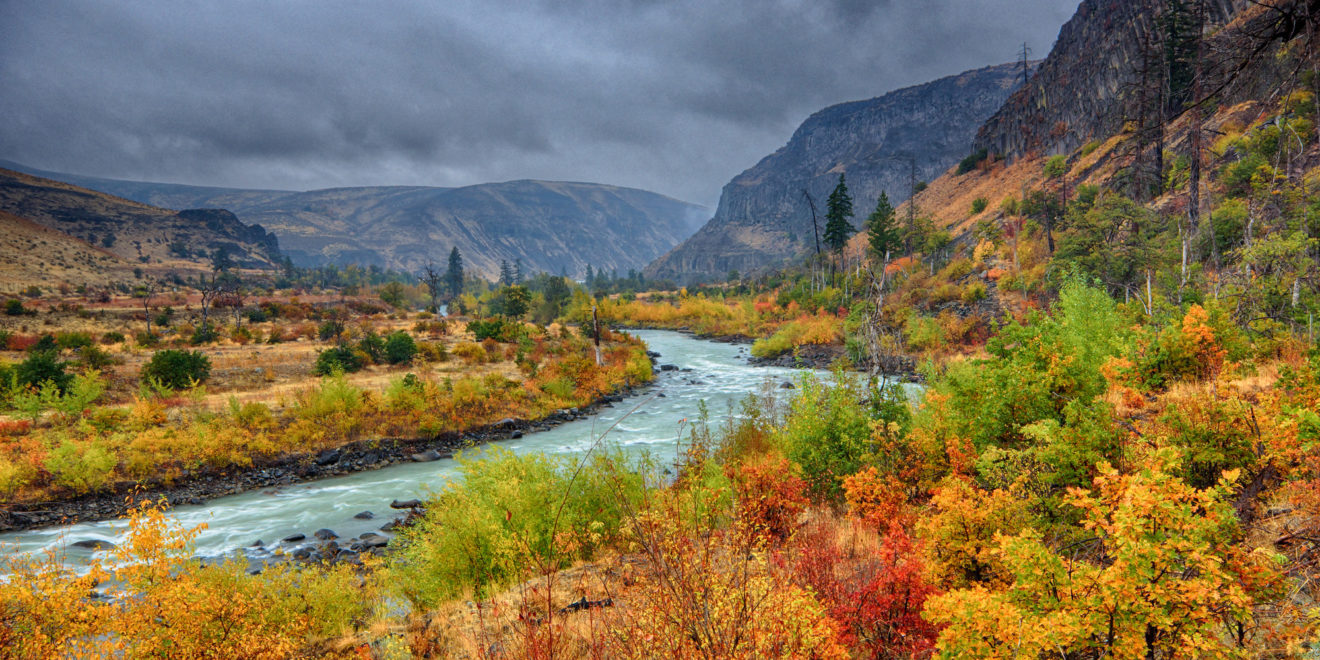4,486 Acres of Wildlife Opened to Public Access in Washington

Working closely with Forterra and the Rocky Mountain Elk Foundation, the Washington Department of Fish and Wildlife (WDFW) recently finalized the purchase of 4,486 acres of land near Yakima in the foothills of the eastern Cascades. WDFW will manage the new property as an addition to the Cowiche Unit of the Oak Creek Wildlife Area.
The site serves as a key habitat and a migration corridor for an astonishing array of species, including mule deer, elk, Neotropical birds, raptors, bats, and more than 70 butterfly species. The expanded Cowiche Unit will also conserve more than seven miles of Cowiche Creek, an important spawning and rearing habitat for bull trout, coho, and chinook salmon.
Recreational opportunities are abundant on the new property and include hunting, fishing, hiking, wildlife viewing, and bird watching. The low-elevation and close proximity to Yakima makes it an ideal destination for local outdoor recreationists and visitors.
“This property is an important link to surrounding state, federal, and private conservation lands. With the help of our partners RMEF and Forterra, we’re able to permanently protect the area where up to 2,000 Rocky Mountain elk migrate between their summer and winter ranges, and where elk calves are born each year.”
Mike Livingston, WDFW’s south-central regional director
RMEF took the lead on negotiations with the landowner, the Van Wyk family, starting in the early 2000s and solidified a path forward in 2017.
“This is the latest example of RMEF’s work with partners to protect a key elk migration route where butterflies are also known to migrate. The project is built on RMEF and WDFW’s history of securing quality public access in the East Slope of the Cascades,” says Jennifer Doherty, RMEF’s director of lands. “While this project was an important step toward protecting this landscape for wildlife and recreationists, we need to recognize and thank Van Wyk family members for their vision to protect this land.”
Forterra, a nonprofit land conservation organization, stepped up to meet the cost obligations necessary to make the final transaction happen. In addition, for the first time on WDFW-managed lands, Forterra will hold a stewardship easement on the property, which allows the organization to work closely with WDFW to conduct restoration and maintenance work. To help pay for this stewardship and cover transaction costs, Forterra needs to raise $300,000, and has launched a fundraising effort to that end.
“The Van Wyk property is more than a stunning stretch of stream, steppe, and forest,” said Michelle Connor, President and CEO of Forterra. “It’s a puzzle piece that connects all of the protected land surrounding it. In the face of climate change, species like the elk and butterfly found here will rely more and more on un-fragmented ecosystems like this one. We’re thrilled to help secure this special place, and we look forward to working with the state to protect it for generations to come.”
WDFW used funds from a U.S. Fish and Wildlife Service habitat grant and a Pacific Power mitigation agreement to make their portion of the purchase.
“PacifiCorp’s commitment to enhancing wildlife habitat in areas we serve is a keystone of our overall dedication to environmental stewardship. It is great to work with partners such as Forterra, WDFW, and the Rocky Mountain Elk Foundation to help conserve habitat in the essential Cowiche corridor. The funding provided is part of a mitigation agreement connected with PacifiCorp’s major transmission project in the area. We are balancing economic development, improving service reliability, and conserving wildlife habitat through this innovative agreement.”
Brian King, PacifiCorp environmental manager
